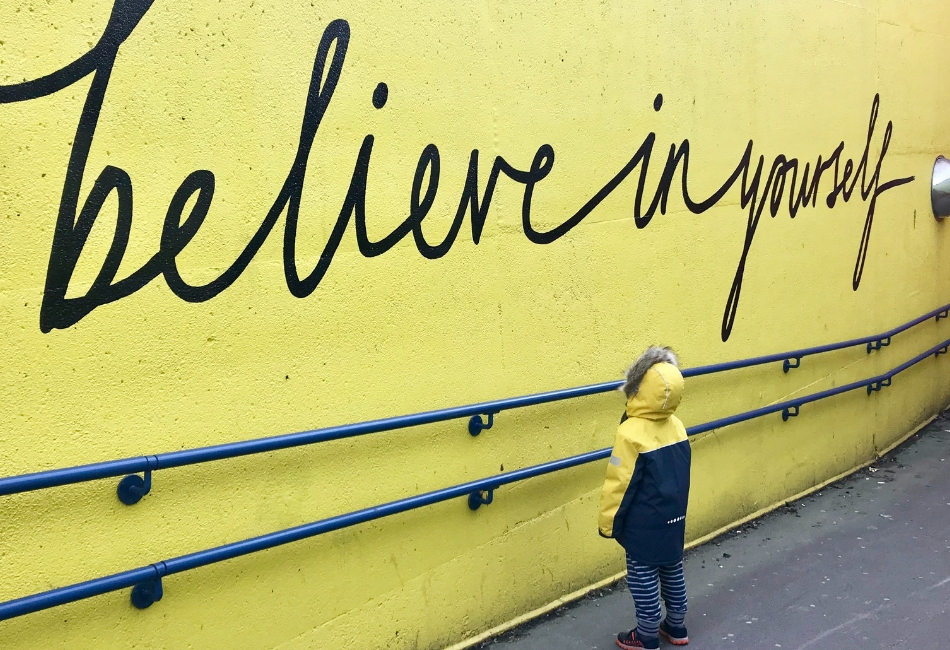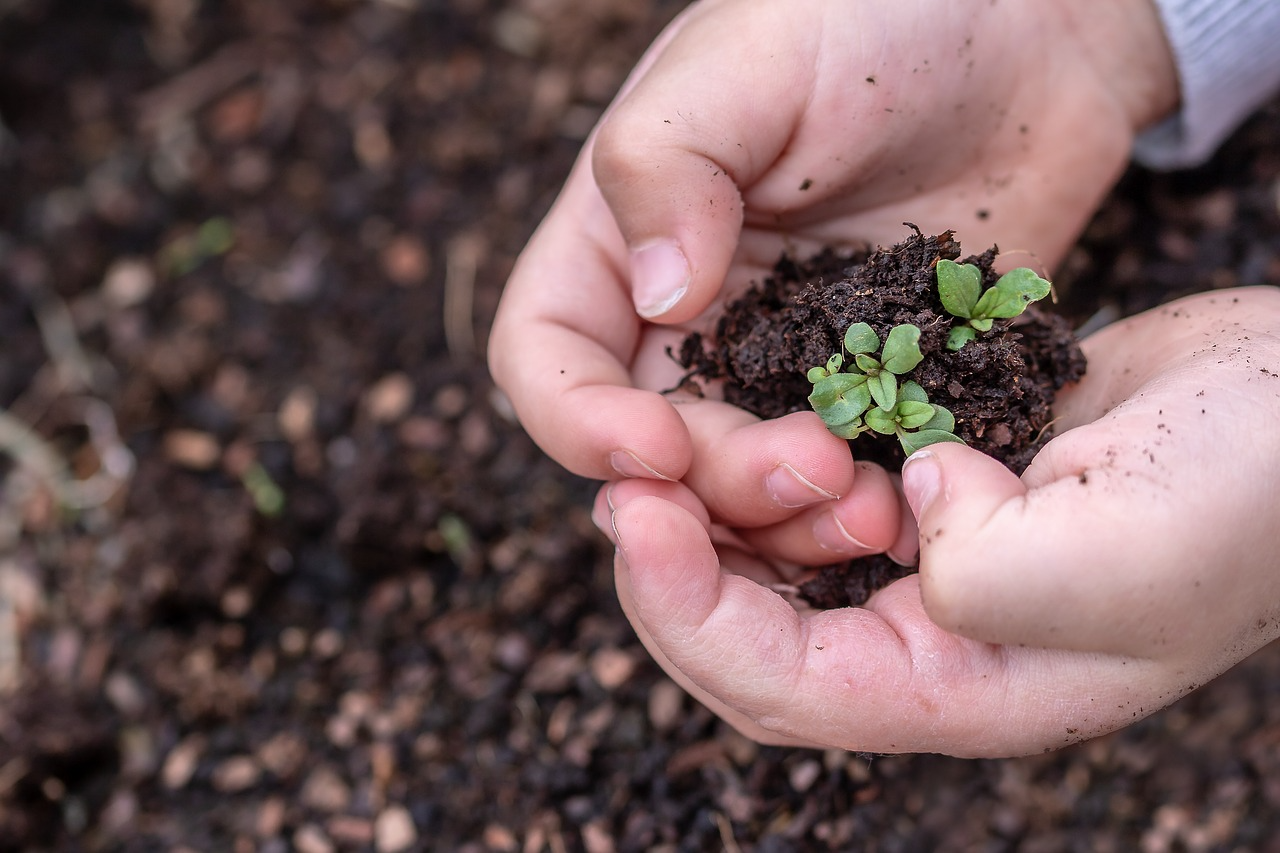
BELIEVE YOU CAN AND YOU WILL…How many times have we tried to tell ourselves we can do something, but yet that doubt and negative talk starts to sneak up? This happens often times without us even realizing it, until it’s gone into a vicious cycle. Now imagine how difficult it can be for kids to catch themselves when they are in that cycle of negative self-talk. Practicing affirmations are a powerful way to help shape your child’s mindset and rewire their brain. Overtime, these negative statements will naturally decrease and be replaced with more positive or even neutral ones. Children’s brains are like sponges, so this can be the perfect time to start introducing affirmation practice to them.
Why is positive affirmation practice especially powerful for children?
Simply put, affirmations are everything that we repeatedly say to ourselves out loud or in our thoughts. They are sentences aimed to alter the conscious and subconscious minds, affecting our thinking patterns, feelings, and behavior. Our thought patterns and belief systems start when we are kids. Children internalize a lot of negative statements consciously and subconsciously, which then turns into their mindset. How often do we hear children saying statements like “I can’t do it” or “I’m stupid”? As a mental health therapist, I see this all the time with the children and teens I work with. The positive news is the brain does not know the difference between what is real and imaginary. Thus, when we repeat positive affirmations, even if we don’t find them true at the time, the brain and our subconscious receives it as truth. Practicing affirmations can ultimately help children improve their self-esteem, sense of belonging, and gain more access to their internal strengths, talents and abilities.

A quick note on toxic positivity….
Before supporting children in changing their self-talk and mindset, it is important to provide a safe, empathetic environment where kids can feel vulnerable to first talk about those “yucky” or uncomfortable thoughts or feelings that may be coming up. Practicing affirmations is very different than being “positive” all the time and we do not want to give kids the message that they have to be happy. It is so powerful for children to learn at a young age that it is safe for them to feel and sit with their emotions, without placing judgement on them. Otherwise, they will learn to minimize, disconnect from, or resist allowing themselves to feel emotions. Being able to catch and acknowledge their negative thoughts/feelings is the first step needed to rewire the brain, before we begin to plant seeds of possibilities with positive affirmations practice.
I AM… 2 simple words, but the power is within what comes after them. As a parent or practitioner, you have the power to start introducing this practice to children, and bring change on a cellular level. Here are some tips on supporting your child’s journey to exercise/sculpt their brain with affirmations practice, just the same way you would exercise your body to gain muscle.
- You are your child’s mirror! Role model, role model, role model:
Children are always watching and hearing us even when we think they’re not! I always say they have eyes in the back of their heads. At times, they may not even be listening to you consciously, but their subconscious minds will pick up on your words, attitude, and even beliefs. It is especially important, as a parent, to set an example of how we want our children to treat themselves. Instead of just telling them what to do, we want to show them. So, find opportunities to role model using positive talk or practicing affirmations out loud for yourself, especially during difficult times. It is always ok to be genuine with any upsetting emotions that may be coming up for you first. You are showing them you are human and vulnerable as well. You can then show them your resiliency, strength, and confidence within yourself by making statements such as, “Mommy’s frustrated right now. I can take some space and calm my body. Or “I made a mistake. I forgive myself.” Or just a simple “I can do this, I will try again” during difficult moments.

- Your voice becomes their inner voice:
In addition to practicing your own affirmations, it is important to be mindful of the tone and language you are using with your kids, especially during a heated moment. If they are in the midst of being upset, as mentioned before, makes sure to first acknowledge, validate, and reflect on any emotions that you are observing in the moment. You can then look them in the eye and say, “You are loved. You are safe. You are trying your best.” Affirming your child can not only improve their self-esteem, but also improve your bond with them. This is especially powerful for children who’s love language is words of affirmation. At the end of the day, you are watering what you want to grow. If you keep nourishing their roots, you will watch your kids bloom!
“Change your thoughts, and you change your world” -Norman Vincent Peale

- Make affirmation practice fun!
You can practice doing affirmations with your children on the AffirmMe IOS app. Make it like a game, rather than a chore. While under the practice page of the app, you can have them hold the button down until the words appear and say it out loud together. There are also examples of positive affirmations to use under the “kids” or “teens” categories on the app for ideas. Empower your children to choose their own, simple affirmations, as this will make them more invested to practice using them. You can also practice looking in the mirror with your child while you say affirmations out loud and make different faces. If your child enjoys creativity, you can draw the words in fun letters and make it colorful on paper or place them on post-its around the house. This is also great bonding time for you both to be doing something positive together. And remember, it only takes a couple minutes a day!!
On a final note, repetition is key-the more we repeat affirmations, the more likely they are to become a hardwired belief. Overtime, you will hear your children say the affirmations naturally in situations and not feel forced. It won’t be long before you find your little one talking to herself/himself and saying things like, “I can do this. I am capable. I am worthy.” If that doesn’t bring a smile to your face, I don’t know what will! ☺
*You can find more tips on how to write affirmations on the AffirmMe IOS App for free, as you start to your journey. All features are currently being offered for free, including music, journaling, and access to hundreds to affirmations. We hope this brings some relief into people’s lives during COVID.
I will leave you with one of my favorite quotes:
“You are braver than you believe, stronger than you seem, and smarter than you think.” -Christopher Robin


0 Comments